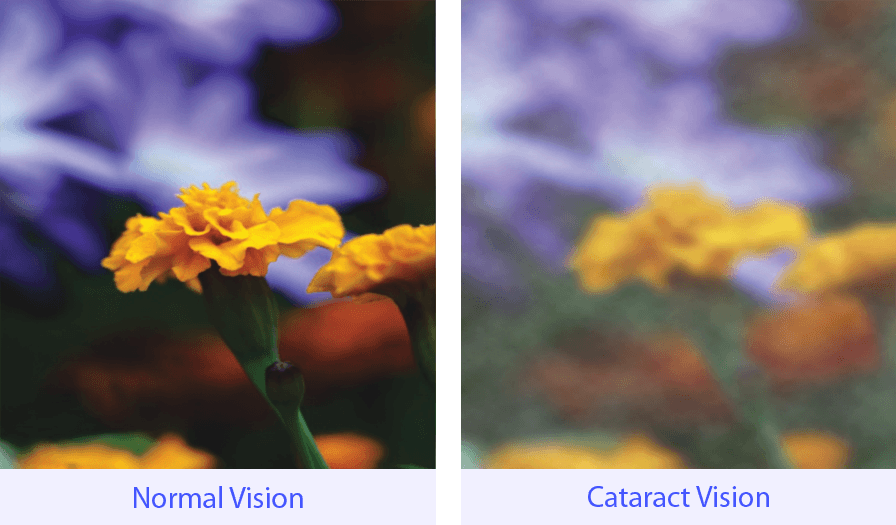Is your vision getting cloudy? Are you having trouble seeing at night because of glare? Are you needing more light for reading?
You may be developing cataracts.
A cataract develops when the lens in the eye become cloudy, making eyesight blurry and distorted. By the age of 80, more than half of all Americans have developed cataracts or have undergone cataract surgery.
Not all patients with cataracts need surgery. Some people will be able to manage their cataracts with prescription glasses. However, as cataracts progress, they can cause more problems in your daily life, annoyances that are too big to be ignored! Whether you’re preparing for retirement, welcoming a new grandbaby to the family, or having trouble reading or watching TV – we want you to see life clearly.
What to Expect During Surgery
You will receive medication to provide light sedation and help you relax during cataract surgery, and a topical anesthetic to numb your eyes. Although you will remain awake, the procedure should not be painful and is typically completed in 15-20 minutes.
Your doctor will use the LenSx femtosecond laser (the first bladeless cataract technology in Alabama!) to perform key parts of the cataract procedure. The laser works off a computer-guided image of your eye to make a small, circular opening in the lens capsule and to break up the cataract. LenSx can also be used to minimize any irregularity or astigmatism of your cornea which could degrade your uncorrected vision after surgery if left untreated.
Cataract surgery is an outpatient procedure so you won’t have to stay overnight at the hospital. The surgery generally takes less than an hour and most patients feel little-to-no pain.
If you have cataracts in both eyes you will most likely be scheduled for two separate surgeries approximately 2 weeks apart. This will give your eyes a chance to heal separately.
What to Expect after Surgery
It is very important that you give yourself time to rest for the first couple days after surgery. It is common for your eyes to feel irritated and the vision to be blurry for a few days following the procedure.
Your doctor can either use a medication during surgery or prescribe prescription eye drops to help the eye heal and decrease your risk of infection after surgery. You should avoid driving the day of the procedure but can drive the next day as long as you feel comfortable with your vision. doing anything that will put any strain on your eyes. Cataract surgery is typically sutureless, meaning the incisions do not need to be sewn closed. Because of this, we recommend wearing an eye shield at bedtime to protect the eyes after surgery. can help protect your eye so it can heal more quickly and properly.
Your eye should fully heal in about four weeks. Complications during and after cataract surgery are rare, but you should tell your doctor immediately if you feel your pain that isn’t subsiding or worsening vision.
90% of patients experience improved vision after cataract surgery!
Conclusion
Ultimately, the decision of whether or not to have cataract surgery is up to you as the patient. If you are struggling with this decision, we are here to help. Schedule your consultation today with VisionFirst to see if you are a good candidate for this revolutionary procedure.










